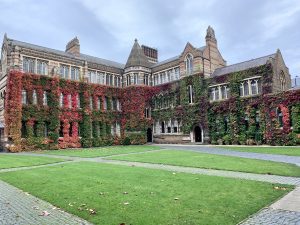Is studying at a school in London more beneficial than attending a school in a remote area?
When we think about education, the bustling city of London often comes to mind. With its prestigious institutions, diverse culture, and endless opportunities, it’s no wonder many consider studying there the ideal choice. However, studying at a remote school can offer unique advantages that may even surpass those found in a metropolitan setting. Let’s explore some of the benefits of remote education.
1. Personalized Learning Environment
Remote schools often have smaller class sizes, allowing for a more personalized approach to education. Teachers can provide individualized attention, tailoring their methods to suit each student’s learning style. This focused environment can foster deeper understanding and greater engagement with the material.
2. Connection to Nature
Remote schools are frequently nestled in beautiful, natural surroundings. These settings can enhance students’ mental well-being, offering a serene atmosphere conducive to learning. Outdoor activities—such as hiking and exploring local ecosystems—can be integrated into the curriculum, promoting a holistic education that values both academics and the environment.


3. Stronger Community Bonds
In smaller, remote areas, schools often serve as the heart of the community. Students form close-knit relationships with their peers and educators, creating a supportive network that enhances social and emotional development. This sense of belonging can lead to lasting friendships and a strong sense of identity.
4. Fewer Distractions
The fast-paced life of a city like London can be overwhelming, with countless distractions vying for students’ attention. Remote schools typically offer a quieter, more focused atmosphere, allowing students to concentrate on their studies without the constant buzz of urban life. This can result in improved academic performance and reduced stress.
5. Unique Learning Opportunities
Remote areas can provide educational experiences that urban schools may not offer. Students might have the chance to engage in hands-on learning through local agriculture, wildlife conservation, or traditional crafts. These experiences enrich their education and provide practical skills that are valuable in the real world.


6. Track Records for Prestigious University Admissions
Many remote schools have impressive track records of sending graduates to prestigious universities. Their personalized approach, combined with dedicated staff, helps prepare students for the challenges of higher education. This success demonstrates that remote education can provide a strong foundation for future academic pursuits.
7. Cost of Living
Studying in London can be expensive, with high costs for accommodation, transportation, and daily living. In contrast, remote schools often offer more affordable living arrangements. This financial relief allows students to focus more on their education rather than worrying about the burden of student debt.

Conclusion
While studying at a school in London has its benefits, remote schools offer a range of advantages that are equally—if not more—compelling. From personalized learning and stronger community ties to unique educational experiences and a peaceful environment, remote schools provide a distinctive approach to education that can foster growth in numerous ways. Ultimately, the best choice depends on individual preferences and learning styles, but it is clear that remote education deserves serious consideration and should not be overlooked.








